Mum champions sustainable parenting and reusable nappies after discovering disposable versions can take up to 500 years to degrade
A mum-of-two has ditched disposable nappies and baby wipes to become a completely sustainable parent after discovering that a nappy takes up to 500 years to degrade.
Horrified when she discovered after her youngest boy was born that every day in the UK 8 million disposable nappies are thrown away, Emma Reed, 38, who runs a parenting and eco blog, was determined to change.
After swapping to reusable nappies and banning throwaway baby wipes, Emma then made the home she shares in Basingstoke, Hampshire, with her husband Rob, 37, a finance manager, and their sons Jake, seven, and William, three, as eco-friendly as possible.

Speaking about the importance of sustainable parenting in the build-up to the United Nations Climate Change Conference, starting on Oct 31 in Glasgow, Scotland, she said: “When I had William, I was very shocked to learn about the environmental impact having a baby can have on the planet.
“Everything I know about sustainable parenting I learnt on Instagram and online.
“I knew nothing about it when I had Jake and when I was pregnant with William, I was taken aback when I learnt just how bad nappies are for the environment.”

She added: “I read that every day in the UK 8 million nappies are thrown away and they can take up to 500 years to degrade.
“That’s horrifying.”
Determined not to add to the growing pressure on the environment and to do her bit to reduce her carbon footprint, Emma stocked up on reusable nappies and washable baby wipes.
She said: “When I had Jake, I wasn’t aware reusable items were even an option.
“None of the information I’d been given at the hospital said anything about them.
“And even the way the baby aisles in supermarkets are stocked, you only seem to get told about disposable nappies.”
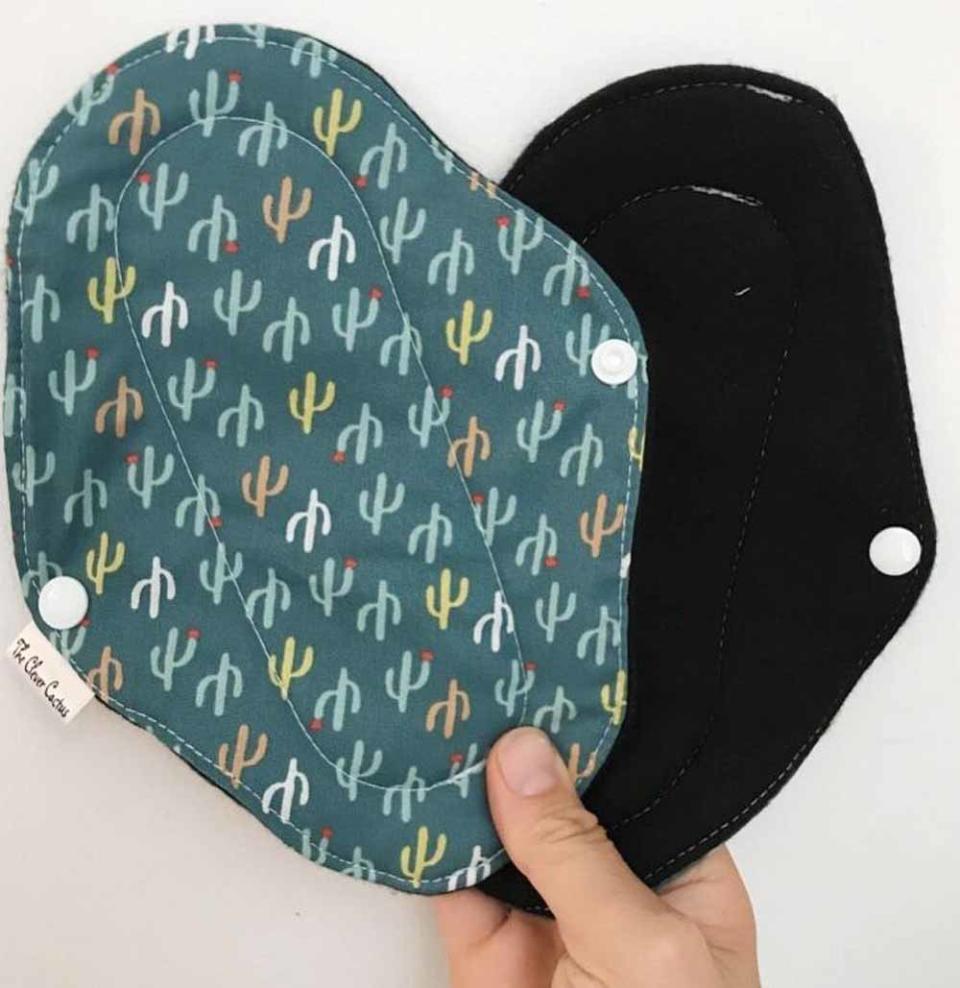
She added: “By the time I had kids, most of my friends had already had children and they had all used disposable nappies.
“It was just the norm, so when I had William, I was very shocked to learn about the environmental impact having a baby can have on the planet.”
And while many people fear it will be too time consuming to wash nappies and wipes, Emma maintains it is easy.
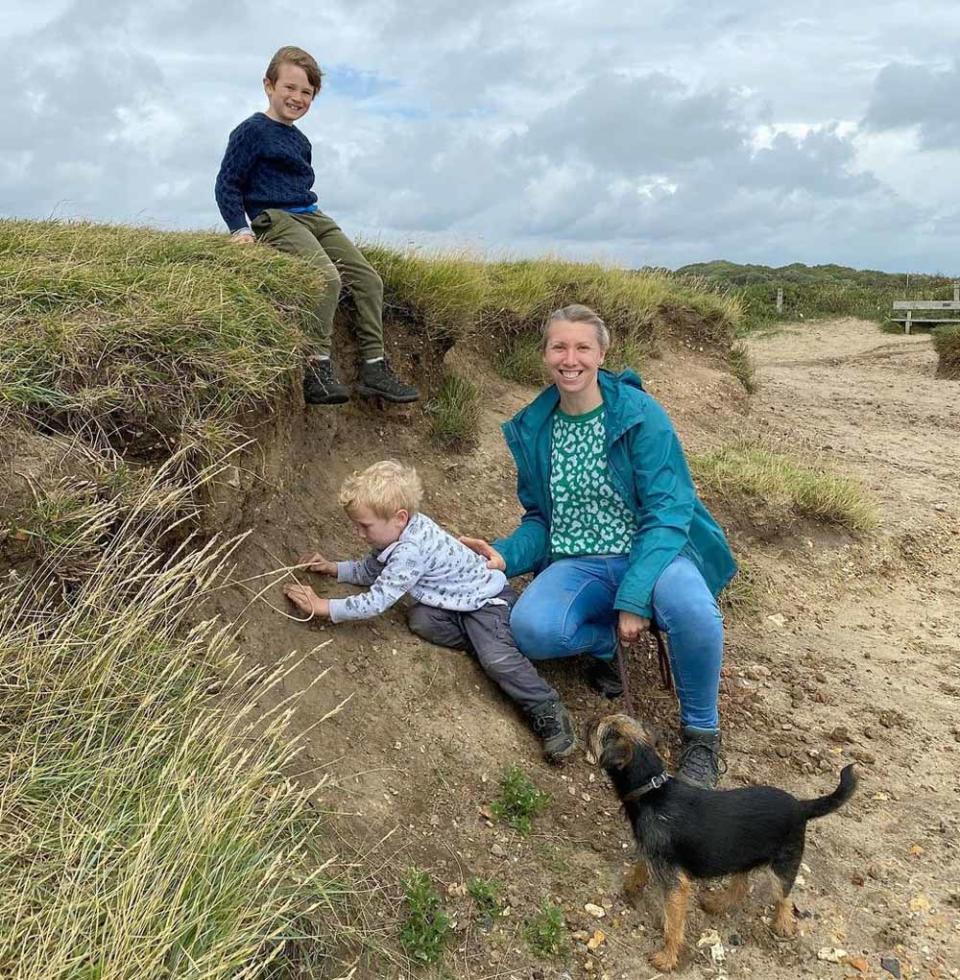
She said: “It’s really not the hassle people might believe it is. It was very straight forward.
“They are designed similarly to a disposable with poppers or Velcro to do them up. So, as long as you’re happy to do the washing, they’re really easy to use.
“The eco problem with nappies is that they’re out of sight, out of mind. We throw them away, but no one thinks about where they go after our bins get collected.”
She added: “Nappies are full of plastic, but I never considered what they were made of before I started researching them.
“That was the main trigger for me to switch to reusable nappies.”
Emma has now made other aspects of her life more sustainable, too.
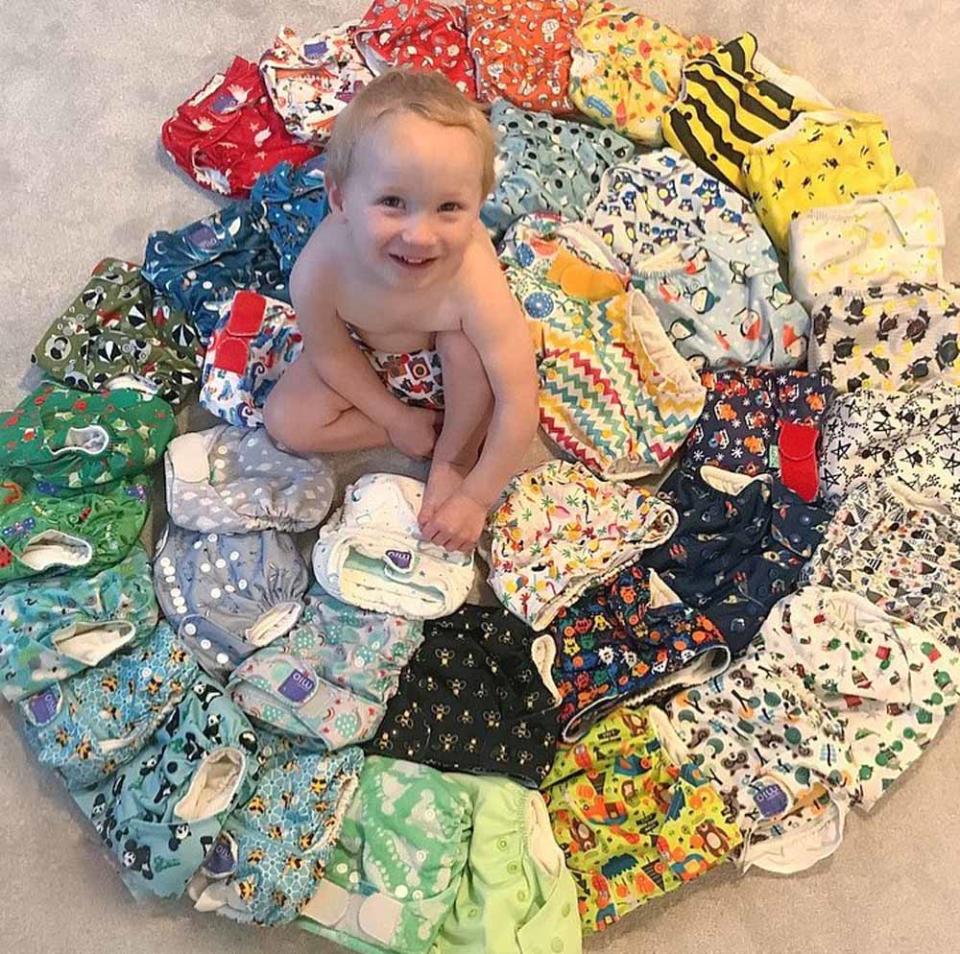
She said: “I started with nappies, but it’s spiralled from there.
“I now use reusable cloth sanitary pads, we do our own composting at home and we’ve started to grow our own vegetables.
“While I was breastfeeding, I started to use reusable breast pads too, instead of disposable ones.”
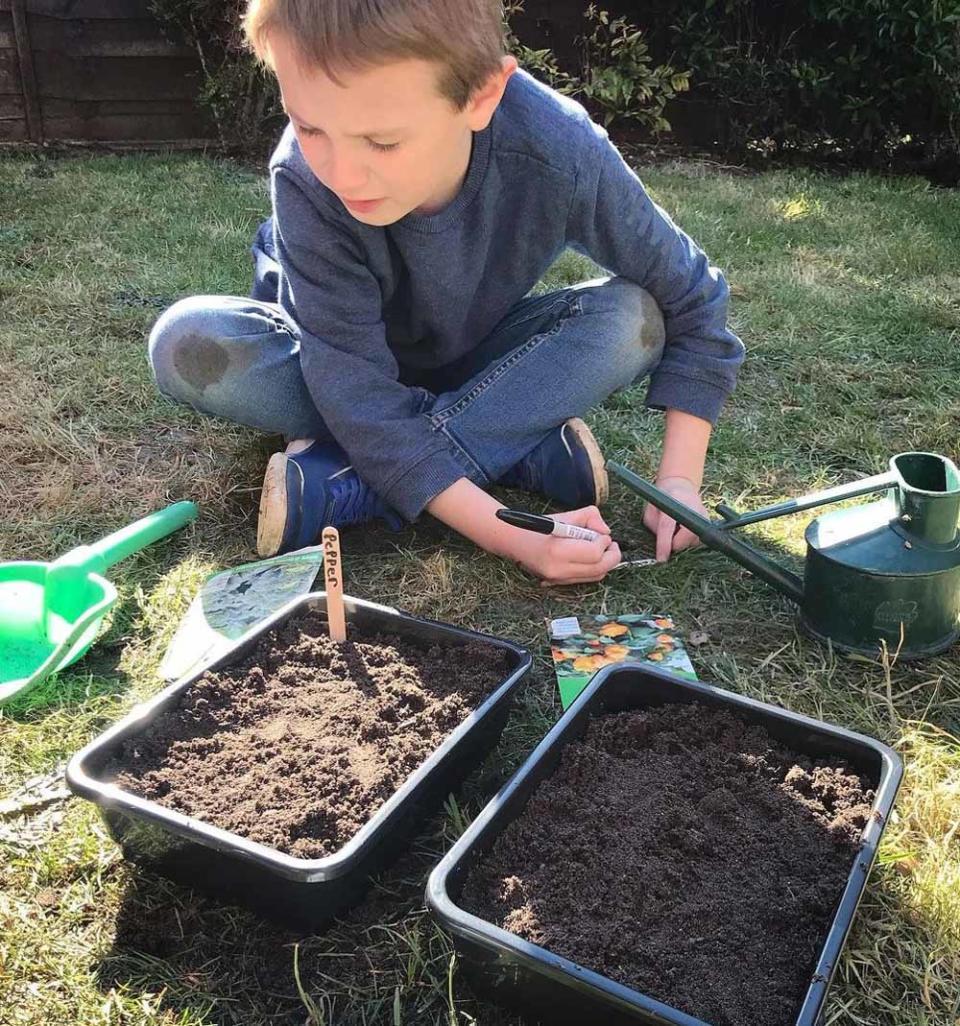
She added: “My eyes have been opened to all the disposable products that we’ve been sold over the years that we actually don’t really need.
“There are a lot of reusable options out there which are better for the environment and also feel better for your bank balance.”
According to Emma, the only challenge she has faced has been educating other people about reusable nappies.
She said: “That’s the only tricky thing I’ve found.
“I’m the first one in the family to use any of this and William is the only child at preschool to be in a reusable nappy, so I had to teach all the staff how to use them.
“At baby groups, I’ve only come across one other person using washable nappies.”
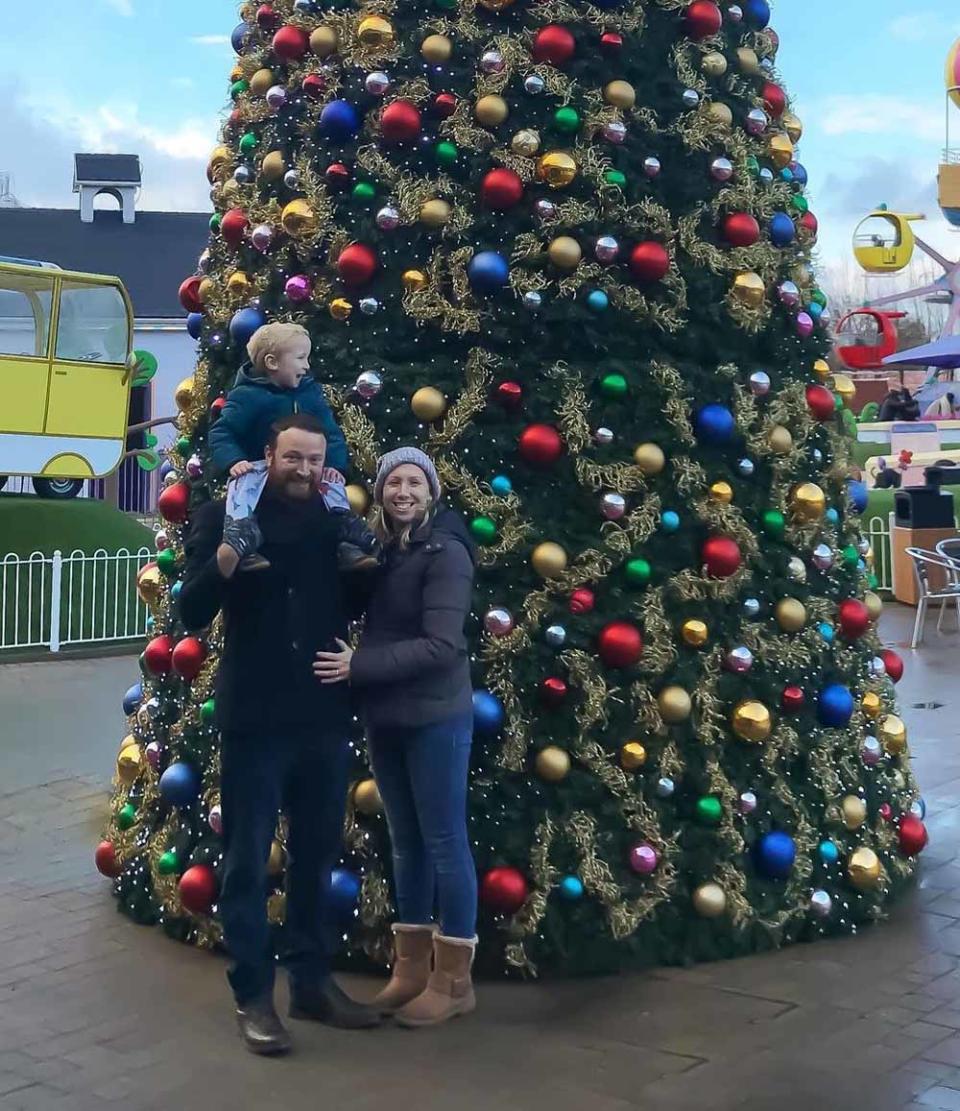
She added: “It isn’t very common, although it does spark up a lot of conversations.
“It’s actually been a very positive experience of getting to speak to people about it.
“I think most people are unaware that reusable nappies are even an option because, unless you’re online a lot, I don’t think you’d see them.”

Now Emma plans to continue being a sustainable parent as her sons grow older.
She said: “William was premature, so we started using the reusable nappies with him at about six months old and we haven’t looked back.
“Now, he’s nearly four and still wears a nappy at night. I dread to think how many disposable nappies we would have gone through by now.”
She added: “Instead, we’re still using the same nappies we bought at six months old, because they are size adjustable.
“I think, if anything, we’re going to become more sustainable as a family as the years go by and we learn more ways to be eco-friendly at home.”
As well as helping to save the planet, being more environmentally conscious has helped Emma to save money.
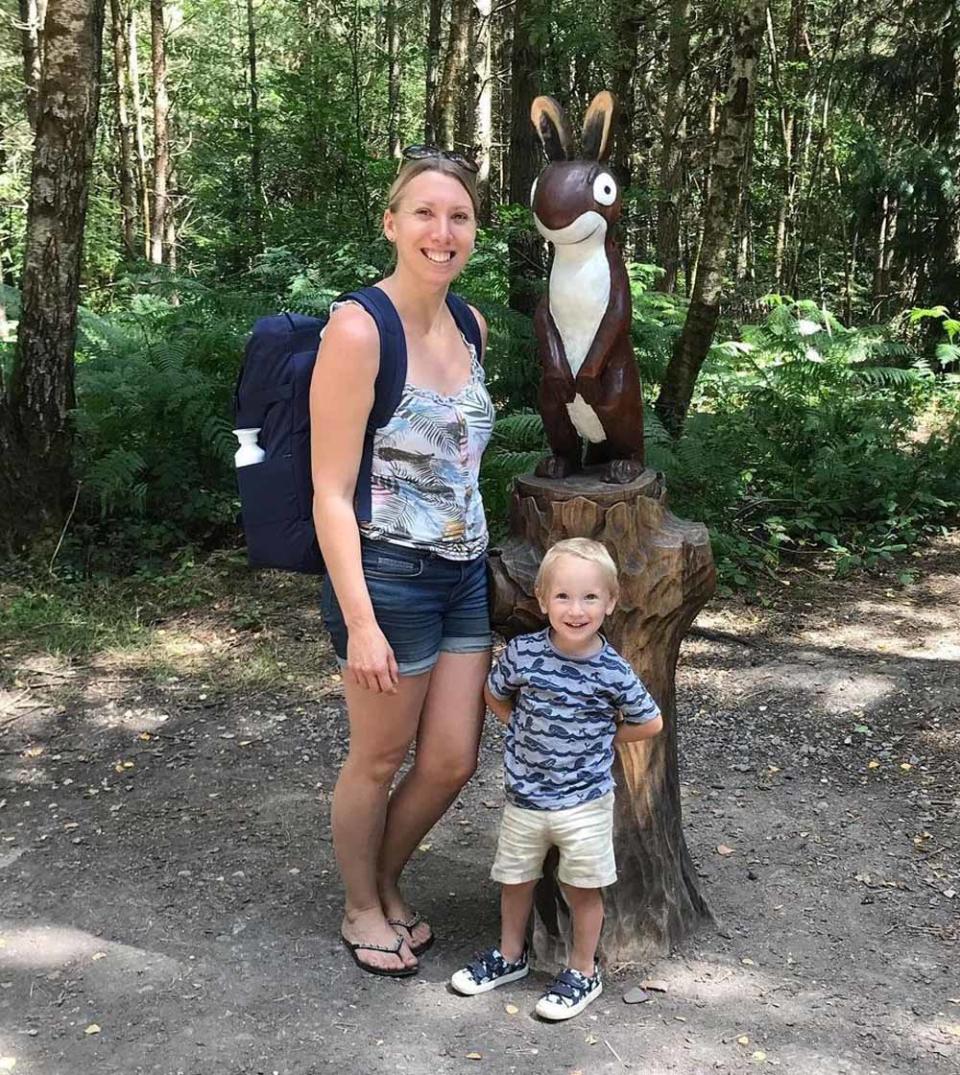
She said: “I would expect to spend £200 in total on reusable nappies and washable baby wipes.
“But disposable nappies and wipes in the long run would cost more like £1,200. It’s unbelievable.
“I’ve kept the reusable nappies I bought for William, just in case we have any more children and I have lent some to my sister, because she had a baby last year.”
She added: “I want to spread the word in the hope that other new parents will discover that there are more sustainable options.”
Founder of The Nappy Gurus – makers of reusable nappies and period pants – Laura Davies, says disposable products contribute massively to global warming and climate change, although the firm’s Great Big Nappy Census 2021 has seen a 600 per cent boost in interest in sustainable baby products over the past 12 months.
She said: “I would really encourage all parents to consider switching from disposable nappies to reusable ones.”

She added: “Not only will this change positively impact the environment, but parents could save a substantial amount of money by making the swap.”
To find out more, visit: www.thenappygurus.com/blog/blog-44.html
For Emma’s blog, visit: www.emmareed.net


